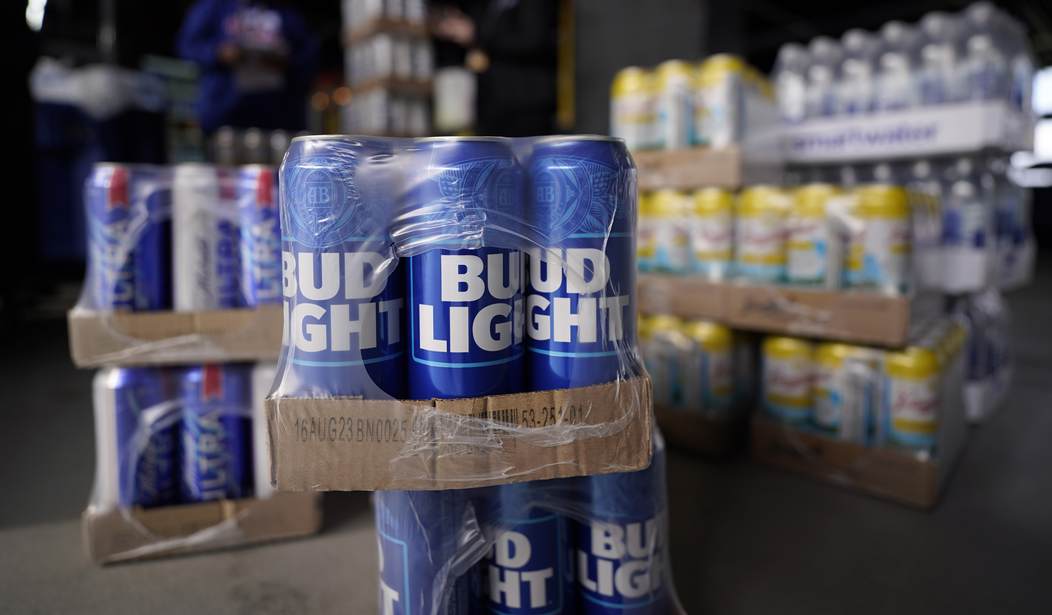It’s been nearly four months since Dylan Mulvaney revealed his partnership with Bud Light, and consumers have yet to forgive the brand. Sales are down and the company has lost billions in market value, laid off workers, and frozen hirings. Time has yet to heal the wounds inflicted by the ill-advised marketing gimmick.
Things have gotten so bad that many Anheuser-Busch distributors have basically given up on getting their lost customers back, according to a report from the New York Post.
“Consumers have made a choice,” an executive at a Texas-based beer distributor told the outlet. “They have left [Bud Light] and that’s how it’s going to be. I don’t envision a big percentage of them coming back.”
Sales of other Anheuser-Busch beers like Budweiser, Michelob Ultra, and Busch Light have also experienced a decline since the Mulvaney debacle. The customers who switched brands probably figured out that light beers aren’t all that different, which means that marketing is the key to winning people over. Bud Light really shot itself in the foot by failing to understand its consumer base and joining forces with a mentally ill man who wears dresses and acts like a ten-year-old girl.
For our VIP members: Here’s Why the Bud Light Boycott Worked so Well
Bud Light’s former VP of Marketing, Alissa Heinerscheid, who is widely considered to be responsible for the partnership with Mulvaney, had reportedly hoped to expand the brand’s appeal to younger consumers.
“I’m a businesswoman. I had a really clear job to do when I took over Bud Light,” Heinerscheid said in a late March episode of the Make Yourself at Home podcast. “It was, this brand is in decline. It’s been in decline for a really long time, and if we do not attract young drinkers to come and drink this brand, there will be no future for Bud Light.”
“It means having a campaign that’s truly inclusive and feels lighter and brighter and different and appeals to women and to men,” Heinerscheid continued. “And representation is sort of at the heart of evolution — you got to see people who reflect you in the work. And we had this hangover — I mean, Bud Light had been kind of a brand of fratty, kind of out-of-touch humor, and it was really important that we had another approach.”
Michael Stone, chairman of Beanstalk Group, a New York-based branding firm, told the Post that targeting younger consumers is the correct approach, but that “Anheuser-Busch made a mistake executing on the strategy.”
Yeah, that’s an understatement.










Join the conversation as a VIP Member